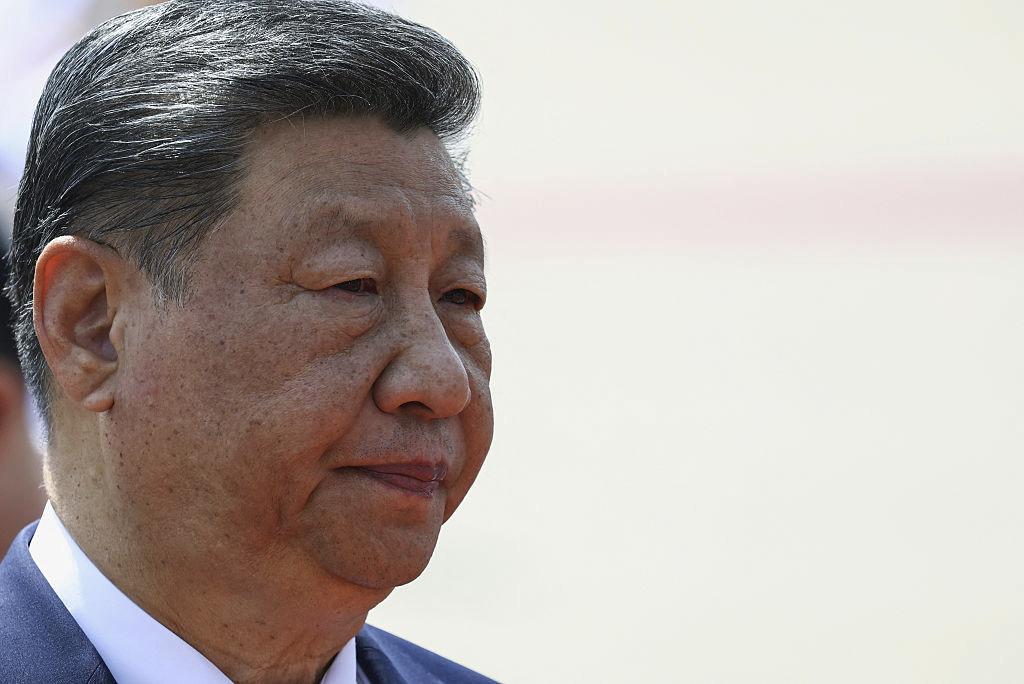
China, according to Reuters and Financial Times reporting on April 25, is not uniformly imposing its new 125% across-the-board tariff on American goods. In short, certain imports from the U.S. are in fact coming in tariff-free. Beijing's new policy has not been announced and is not official.
"Companies in sectors including aviation and industrial chemicals said that some of their products had already been granted a reprieve, while local media reported that some semiconductors had been spared tariffs," the Financial Times noted.
American Chamber of Commerce in China President Michael Hart told Reuters that some pharmaceutical company members of his organization had said they were now able to import products tariff-free.
China is also exempting aircraft engines, nacelles, landing gear, and parts.
"A Ministry of Commerce taskforce is collecting lists of items that could be exempted from tariffs and is asking companies to submit their own requests, according to a person with knowledge of that outreach," Reuters stated. The wire service also noted this: "A list of 131 categories of products said to be under consideration for tariff exemptions was circulating on Chinese social media platforms and among some businesses and trade groups on Friday."
Hart does not think the tariff exemptions were the result of a "specific policy." As he told the FT, "I think right now it's more of a one-off."
Hart is undoubtedly correct about the unofficial nature of the tariff collections: China's Customs officials and the Ministry of Commerce personnel have not been responding to requests for comments. "China has not yet communicated publicly on any exemptions," Reuters stated.
Huatai Securities estimated that Beijing is not collecting tariffs on items that accounted for $45 billion of imports to China last year.
The exemptions suggest a trend. "Recent reports on China secretly waiving tariffs on U.S. imports including certain semiconductors, industrial chemicals, and medical devices add up to a clear Chinese cave-in in its trade conflict with Trump," trade expert Alan Tonelson told Gatestone.
The move is significant, but why is Beijing making such important trade concessions without admitting it is making concessions?
Xi Jinping's regime simply cannot admit that it is not able to stand up to Washington.
Xi has configured the Chinese political system so that only the most hostile policies are considered acceptable. Worse, he has staked the Communist Party's legitimacy on his claim that China has already surpassed America. Therefore, it is hard for him to do anything suggesting that he is dependent on trade with America or is reacting to American pressure.
Xi, consequently, has severely restricted Chinese flexibility, a constraint evident in Beijing's counterproductive posturing. President Donald Trump last week stated that his administration and China had been engaged in tariff talks. In response to the conciliatory comments, the Chinese regime issued a series of statements denying the existence of any such discussions.
Beijing's denials, however, are not credible, given the constant dialogue and continuous interactions between American and Chinese officials over various other matters.
In fact, on April 24, about a dozen Chinese officials, including a "high-ranking official from the Chinese Ministry of Finance," were seen entering the U.S. Treasury's main building in Washington at 7:00 in the morning as Chinese security officials attempted to prevent photographers from recording the entry.
Unfortunately for Xi, he must make concessions. His economy is far smaller than America's, and he is the one running large trade surpluses — China's merchandise surplus last year against the U.S. was $295.4 billion, up 5.8% over 2023.
Worse, China's economy is probably contracting, something evident from price indicators. The country is in a deflationary spiral: In March, the Consumer Price Index was down for the second-straight month and the Producer Price Index was down for the 30th consecutive month.
Meanwhile, China is in the middle of a slow-moving debt crisis, and Xi, having rejected consumption as the fundamental basis of the Chinese economy, must as a result export more to rescue the increasingly grim situation at home.
China's Commerce Ministry on the April 24 indicated Beijing would not talk about trade until Trump removes "unilateral tariff measures." Because of Xi's need to maintain the façade of intransigence, Trump will undoubtedly have to turn up the heat again.
When Trump has to raise the temperature, Beijing has just shown him which U.S. products China believes it cannot do without.
"In fact, the tariff waivers underscore that not only does Beijing need access to the American market far more than Americans need the China market but also that the United States makes vital products that simply aren't Made in China, and won't be for years at best," Tonelson, who comments on the intersection of trade and geopolitics at RealityChek, pointed out.
Take aircraft parts. Beijing has ordered its airlines not to take delivery of Boeing aircraft, and the plane maker has now flown back, from China to the U.S., three 737-Max aircraft that were about to be delivered. Due to the long order backlogs at both Boeing and Airbus, this punishment imposes, as a practical matter, almost no cost on Boeing. Yet if Trump were to order Boeing not to deliver parts or provide services to Chinese airlines, China would soon have to ground a large number of its airliners.
China, in reality, is in no position to fight a prolonged trade war with a determined Trump. That is one of the Chinese vulnerabilities that became evident when Beijing began making concessions in the dark.
China is making significant trade concessions without saying it is making concessions. Xi is, to borrow the term of the day, "folding."
Gordon G. Chang is the author of Plan Red: China's Project to Destroy America, a Gatestone Institute distinguished senior fellow, and a member of its Advisory Board. Follow him on X @GordonGChang.


